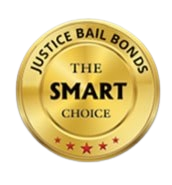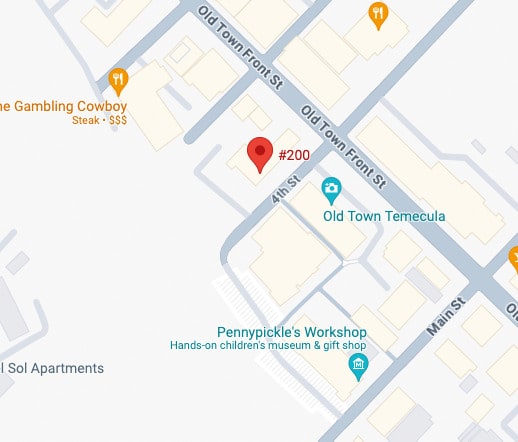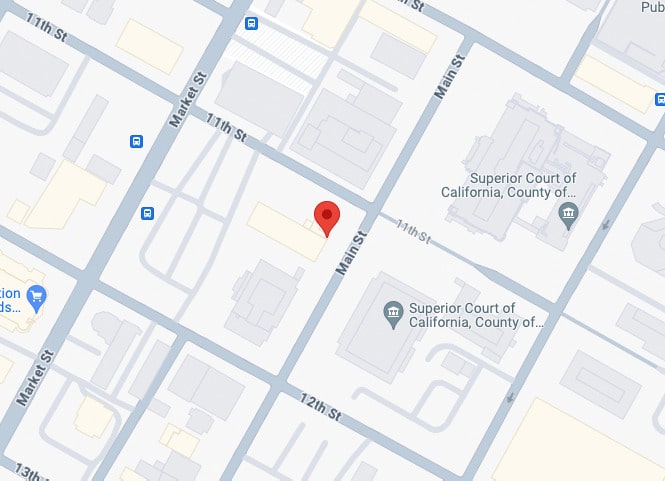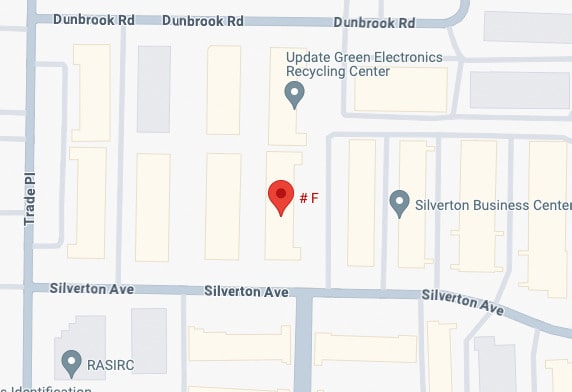In the event of an arrest, there is no need to use your property or personal finances to secure your release. Bail amounts can be substantial, and this is where bail bonds step in to address these significant sums on your behalf.
Instead of exhausting personal assets, choosing a bail bond offers a more manageable approach to securing your release. It presents a practical solution when faced with substantial bail amounts.
Suspects can secure their release by paying only a fraction of the bail through a bail bond without entirely depleting their resources. Consider calling Justice Bail Bonds if you need bail bond services in Chula Vista.
Chula Vista Bail Bonds Process
The bail bond process begins when a judge sets bail in a court hearing. Individuals can turn to a Chula Vista bail bondsman for assistance if full bail is beyond reach. The bondsman posts the full bail amount with the court, securing the defendant's temporary release pending trial. This crucial step comes right after the judge's bail decision.
Bail bonds offer a lifeline for those lacking the means to pay the entire amount upfront.
Bail amounts are not set in stone and hinge on various factors. The judge's discretion plays a pivotal role. He/she will consider elements such as:
-
The Nature of the Charges
The more grave the alleged offenses, the higher the bail tends to be. For example, someone facing charges of a violent crime or a serious felony is likely to have a higher bail compared to an individual charged with a less severe misdemeanor.
-
Whether the Defendant is a Flight Risk
Being labeled a flight risk suggests a heightened probability of avoiding the legal process by failing to attend court hearings. Judges lean toward a higher bail amount when a flight risk is perceived. They also impose additional conditions to mitigate this risk and secure your presence in court.
-
The Defendant’s Criminal History
Your criminal history significantly impacts various legal determinations, with bail setting being no exception. Should your past reveal prior offenses, particularly those akin to the current charges, it could influence the judge's stance on the bail amount. A more extensive or severe criminal background could lead to a higher bail. The higher bail indicates a potential flight risk or perceived danger to the community.
Conversely, a clean or minor criminal history prompts a more lenient approach from the court. It could result in a lower bail amount. In other cases, the judge could be inclined to release you on your own recognizance (O.R. release).
-
Any Community Ties
Strong community ties are compelling indicators of stability and your roots in the community. They suggest a lower risk of flight and a higher probability of your commitment to fulfilling court obligations.
Conversely, if your ties to the community are perceived as fragile or lacking, the judge could be more cautious when determining bail. This could translate to a higher bail amount or additional conditions to address concerns about potential flight or non-compliance.
-
Financial Resources
The courts lean toward higher bail if you have substantial financial means. Conversely, the court considers a lower bail amount or explores alternative release options for those with limited financial resources. This approach reflects the principle that bail should be reasonable and attainable. Additionally, bail should be aligned with the accused person's financial capacity.
Indicators of strong community ties include:
- Stable employment.
- Property ownership in the community.
- A strong history of participation in community initiatives.
- Family connections, and
- Permanent residency in Chula Vista.
-
Risk to the Community
The court assesses various factors when determining whether to release an individual on bail. Some of them include behavioral patterns indicative of potential danger, such as:
- A history of violence or
- A disregard for the law.
Concerns or evidence suggesting potential harm to the community can significantly influence the bail decision. They could result in stricter conditions or a higher bail amount.
All these measures show the court's consideration of public safety. You could be subject to more stringent measures or increased bail if the courts perceive you as a danger to the community.
Additionally, cases involving the risk of witness intimidation or interference are thoroughly examined.
-
Past Failures to Appear (FTAs)
When you have a track record of failing to appear, it signals potential issues related to your reliability and trustworthiness. This, in turn, raises concerns about your commitment to fulfilling legal obligations.
Repeated failures to appear can heighten the perception of the individual as a flight risk, as evading legal proceedings becomes a pattern. Judges often consider a person's history of compliance with court orders when making decisions about bail conditions.
Consequently, the court could opt for stricter bail conditions to mitigate non-compliance risk, like higher bail amounts, electronic monitoring, or more frequent check-ins. Moreover, the legal consequences of past failures to appear, including additional charges for failure to appear, can further complicate your legal situation.
Note: Judges exercise this discretion to strike a balance. They aim to ensure defendants attend court while addressing public safety concerns. This discretionary power underscores the need to tailor bail conditions to the specifics of each case, steering clear of a one-size-fits-all approach.
Despite this discretion, judges must align their decisions with legal principles. If you have concerns about a judge overstepping or acting outside legal boundaries, you can pursue the available legal avenues to challenge the set bail.
Chula Vista Bail Bonds
Bail bonds work by easing the financial burden associated with the entire bail sum. A bail bond entails relinquishing a fraction of the total bail amount, around 10%. This fraction serves as a non-refundable fee paid to the bail bondsman.
In exchange, the bail bondsman takes on the responsibility of posting the complete bail amount with the court. It facilitates the temporary release of the defendant. This approach offers a more accessible and prompt solution for those struggling to cover the complete bail amount independently.
There are a few considerations that you should know about when using Chula Vista bail bonds, namely:
-
Co-signer
Bail bondsmen often ask for co-signers when issuing bail bonds. A co-signer takes financial responsibility for the defendant, ensuring they comply with court-set conditions. This adds an extra layer of assurance for the bail bondsman.
Co-signers play a crucial role by providing a financial guarantee for the bail bond. By signing the contract, they commit to paying the full bail amount if the defendant fails to appear in court. This arrangement helps bail bondsmen manage the financial risks associated with bail.
Their duties include ensuring the defendant appears for all court hearings. The co-signer verifies the defendant’s financial stability and acts as a communication channel between the bondsman and the defendant. Co-signers enter into a legally binding agreement. The agreement outlines responsibilities and potential consequences if the defendant does not comply.
-
Collateral Requirement
Bail bondsmen often request collateral as part of the bail bond agreement. Collateral serves as an additional layer of security. It ensures assets or valuables are available to cover the bail amount in case the defendant fails to appear in court.
Common types of collateral include real estate, vehicles, or other valuables.
The collateral requirement offers tangible assets that can be liquidated if the defendant does not comply with court orders. It also encourages the defendant and co-signer to meet their obligations to avoid the potential forfeiture of collateral.
A Penal Code 1275 Hold
When concerns arise about the origins of funds used for bail, the court may impose a PC 1275 hold. This legal provision lets the court pause the release of a defendant when there is uncertainty about the money's source. This decision ensures the bail cash is on the up-and-up, flowing from lawful and legitimate channels, steering clear of any shady business.
Those posting bail must produce evidence or paperwork proving the money’s legitimate sources.
Note: A PC 1275 hold does not automatically mean the defendant is guilty. It is more about the court's duty to ensure the bail process adheres to the legal provisions.
Failure to Appear (FTA)
Skipping bail is a criminal offense, commonly called failure to appear. When an individual is released, whether on bail or their own recognizance, they are legally obligated to attend all scheduled court hearings and adhere to any conditions set by the court.
Failing to appear is grave and can result in serious legal consequences. This includes:
- The judge issuing an FTA warrant.
- Subsequent arrests by law enforcement and
- Possibly facing additional charges related to non-compliance with court orders.
An FTA warrant is issued by a court when an individual released on bail or their own recognizance fails to show up for a scheduled court hearing. Typically requested by the prosecutor or the court, this warrant signifies a breach of the release conditions.
Failure to comply and appear in court as mandated can be deemed a violation of the release conditions, prompting the court to issue an FTA warrant.
The FTA warrant empowers law enforcement to arrest the individual, bringing them before the court to address the failure to appear. This situation adds to the risk of facing the original charges and additional charges related to the failure to appear, leading to further legal consequences.
Those released on bail or recognizance must prioritize attendance at all court hearings to sidestep the issuance of an FTA warrant and the ensuing legal fallout. In cases of genuine impediments preventing attendance, it is advisable to proactively communicate with the court or legal representatives beforehand to address the circumstances.
Prosecutors file Failure to Appear (FTA) charges under specific legal codes, such as:
- Penal Code 1320 — This law addresses the willful failure to appear in court after being released on bail, own recognizance (OR), or another form of release pending trial. It pertains to situations where individuals knowingly disregard their obligation to attend scheduled court hearings.
- Penal Code 1320.5 — This statute deals with failing to appear on a felony charge. It is an offense when someone released on their own recognizance or bail for a felony fails to appear in court as required.
- Vehicle Code 40508 — This law relates to failing to appear in court for a traffic citation or violation. This law is often invoked in cases where individuals fail to address or appear in court for traffic-related offenses.
Failing to appear in court can lead to a misdemeanor or felony charge. It is important to note that these are additional charges to the original charges filed against you.
Can I Fix an FTA Warrant?
Recalling a bench warrant in California demands proactive steps. Courts will not drop warrants automatically. This then requires prompt action on your part. Immediate action is critical, and appearing in court is the initial step to tackle the failure to appear warrant. Ignoring it can exacerbate the situation.
A criminal defense attorney can aid in quashing the warrant, particularly if it relates to missing a court appearance or misdemeanor payment. However, there are distinctions based on the nature of the case:
-
Warrant for Missing a Court Appearance or Misdemeanor Payment
Your criminal defense attorney can often represent you in court for these warrants without your presence.
-
Warrant for Failure to Obey a Court Order in a Felony Case
For warrants tied to failing to obey a court order in a felony case, you must be present in court, whether or not you have an attorney.
Effective legal strategies have proven successful in quashing bench warrants. These include the following:
- Compliance with a court order — You can present evidence of complying with all conditions and requirements in a court order.
- Non-receipt of notice — A valid argument is demonstrating that you never received a notice to appear in court.
- Mistake in identity — Proving a mistake in identity asserts that you are not the intended individual in the case.
- Unawareness of case filing — Arguing unawareness of a filed case can be effective.
These arguments, backed by appropriate documentation, contribute to successfully quashing the warrant.
Identifying the Right Pick from the Various Chula Vista Bail Bondsmen
Choosing a bail bondsman can be challenging due to the multitude of options available. However, specific considerations can simplify the process and guide you toward selecting the ideal bondsman. These include the following:
-
Online Reviews
Online reviews, shared by customers, provide valuable insights into the company's performance. Consider them your initial guidepost to assess the effectiveness of a bail bond service. Furthermore, your criminal defense attorney can direct you toward reliable Chula Vista bail bond companies. They have worked alongside some of them, and over the years, they can tell who to rely on.
-
Licencing Status
When picking a bail bondsman, do not overlook the essentials: licensing and accreditation. The California Department of Insurance (CDI) is pivotal in keeping Chula Vista and statewide bail bond providers in check. They make sure Chula Vista bail bondsmen operate legally and ethically. You can log onto the California Department of Insurance’s website and verify the bail bondsman’s license status.
-
Bail Bond Costs and Ease of Payment
Since most companies charge a 10% non-refundable fee, selecting a bail bondsman is complicated based on their pricing. However, the flexibility of payment options offered is an avenue to choose a budget-friendly bail bondsman. Payment flexibility is your ally in securing the assistance you need to secure your freedom or that of a loved one without compromising your finances.
Note: Some Chula Vista bail bondsmen are notorious for concealing hidden costs. Carefully scrutinize the cost elements to avoid suffering from their unethical practices. The transparency of costs and fees is paramount. Therefore, exercise your right to clarity and choose a bail bondsman who operates with openness and integrity.
-
Availability and Responsiveness
Go for a bondsman with round-the-clock availability and rapid responsiveness. Emergencies pay no heed to schedules. Thus, you need a bail bondsman who is easily accessible when needed. When urgent, a readily available bondsman ensures prompt and dependable assistance. They offer a vital lifeline when navigating legal challenges.
-
Years of Experience
A seasoned bail bondsman's extensive experience builds a robust network and positive relationships within the legal community. This well-established network enhances communication and procedures, ensuring a more efficient resolution to bail-related matters.
Moreover, this wealth of experience contributes to a profound understanding of the local legal system's intricacies. This nuanced understanding enables the bondsman to navigate specific processes, requirements, and jurisdictional nuances easily. The result is invaluable expertise that facilitates a more informed approach to handling bail procedures and related legal matters.
Chula Vista Jail and Courthouse Information
Chula Vista Jail
Chula Vista City Jail
South Bay Detention Facility
Courthouse Serving Chula Vista
Superior Court South County Division
Contact a Reliable Bail Bondsman Near Me
If you need bail bond services in Chula Vista, take immediate action to secure prompt and reliable assistance. Reach out to Justice Bail Bonds now and benefit from our extensive expertise, round-the-clock availability, and unwavering commitment to guiding you through the intricacies of the legal process.
Your freedom is our top priority, and we stand ready to be your trusted ally in navigating the path to resolution. Contact us at 714-541-1155 for a swift and effective response to your bail bond needs.









